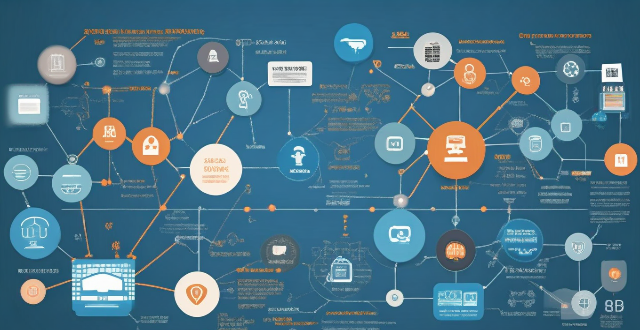The article discusses the impact of Huawei's telecommunication technology on the global market, highlighting its investment in research and development, expansion into emerging markets, innovation in mobile networking, collaboration with industry partners, adoption of open standards, addressing cybersecurity concerns, and driving down costs. Huawei's commitment to innovation and efficiency has led to significant cost savings for consumers and businesses worldwide, making advanced telecommunication technologies more accessible. The company is likely to continue driving innovation and exploring new frontiers in the telecommunication industry in the coming years.

Impact of Huawei's Telecommunication Technology on the Global Market
Huawei, a Chinese multinational technology company, has made significant strides in the telecommunication industry over the past few decades. The company's innovative solutions and products have had a profound impact on the global market, transforming the way people communicate and access information. In this article, we will explore the various ways in which Huawei's telecommunication technology has influenced the global market.
1. Investment in Research and Development
One of the key factors that have contributed to Huawei's success in the telecommunication industry is its substantial investment in research and development (R&D). The company dedicates a significant portion of its revenue to R&D, allowing it to stay ahead of the curve in terms of technological advancements. This focus on innovation has enabled Huawei to develop cutting-edge products and services that cater to the evolving needs of consumers and businesses worldwide.
2. Expansion into Emerging Markets
Huawei has been instrumental in expanding its reach into emerging markets, where there is a growing demand for affordable and reliable telecommunication services. By offering cost-effective solutions and partnering with local operators, Huawei has been able to establish a strong presence in regions such as Africa, Asia, and Latin America. This expansion has not only provided much-needed connectivity to underserved areas but also created numerous job opportunities and fostered economic growth in these regions.
3. Innovation in Mobile Networking
Huawei has been at the forefront of mobile networking technology, playing a crucial role in the development and deployment of 4G and 5G networks around the world. The company's expertise in radio frequency (RF) technology, network architecture, and software-defined networking (SDN) has enabled it to deliver high-performance, scalable, and secure mobile networking solutions. These advancements have paved the way for faster data transmission speeds, improved network coverage, and enhanced user experiences across various devices and applications.
4. Collaboration with Industry Partners
Huawei has actively collaborated with industry partners, including network operators, device manufacturers, and content providers, to drive innovation and promote the adoption of new technologies. Through strategic partnerships and joint ventures, Huawei has been able to leverage the strengths of its partners to develop integrated solutions that address complex challenges faced by the telecommunication industry. This collaborative approach has not only accelerated the pace of innovation but also helped create a vibrant ecosystem that benefits all stakeholders involved.
5. Adoption of Open Standards
Huawei has been a strong advocate for open standards in the telecommunication industry, recognizing their importance in fostering interoperability, reducing costs, and promoting innovation. The company has actively participated in standardization bodies such as the International Telecommunication Union (ITU), the European Telecommunications Standards Institute (ETSI), and the Institute of Electrical and Electronics Engineers (IEEE), contributing to the development of global standards for next-generation networks. By embracing open standards, Huawei has helped ensure that its products and services are compatible with those from other vendors, enabling seamless integration and interoperability across different networks and devices.
6. Addressing Cybersecurity Concerns
In recent years, cybersecurity has become a major concern for both consumers and businesses alike. Recognizing this issue, Huawei has made significant efforts to enhance the security of its products and services. The company has implemented rigorous security protocols, conducted regular security audits, and established dedicated cybersecurity centers to address potential vulnerabilities and threats. Additionally, Huawei has been transparent about its processes and willing to work with governments and regulators to address any concerns they may have regarding cybersecurity.
7. Driving Down Costs
Huawei's commitment to innovation and efficiency has led to significant cost savings for both consumers and businesses worldwide. By developing cost-effective solutions and streamlining operations through automation and digital transformation initiatives, Huawei has helped reduce the overall cost of ownership for its customers. This has made advanced telecommunication technologies more accessible to a wider range of users, particularly in emerging markets where affordability is a key factor in technology adoption.
Conclusion
In conclusion, Huawei's telecommunication technology has had a profound impact on the global market by driving innovation, expanding access to connectivity, fostering collaboration, promoting open standards, addressing cybersecurity concerns, and driving down costs. As the company continues to invest in R&D and explore new frontiers in the telecommunication industry, it is likely that we will see even more groundbreaking advancements from Huawei in the coming years.